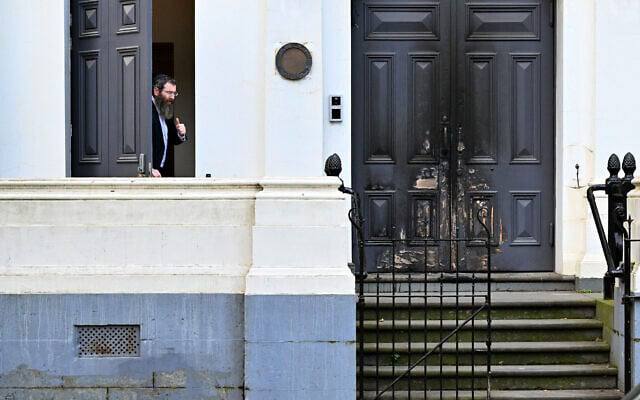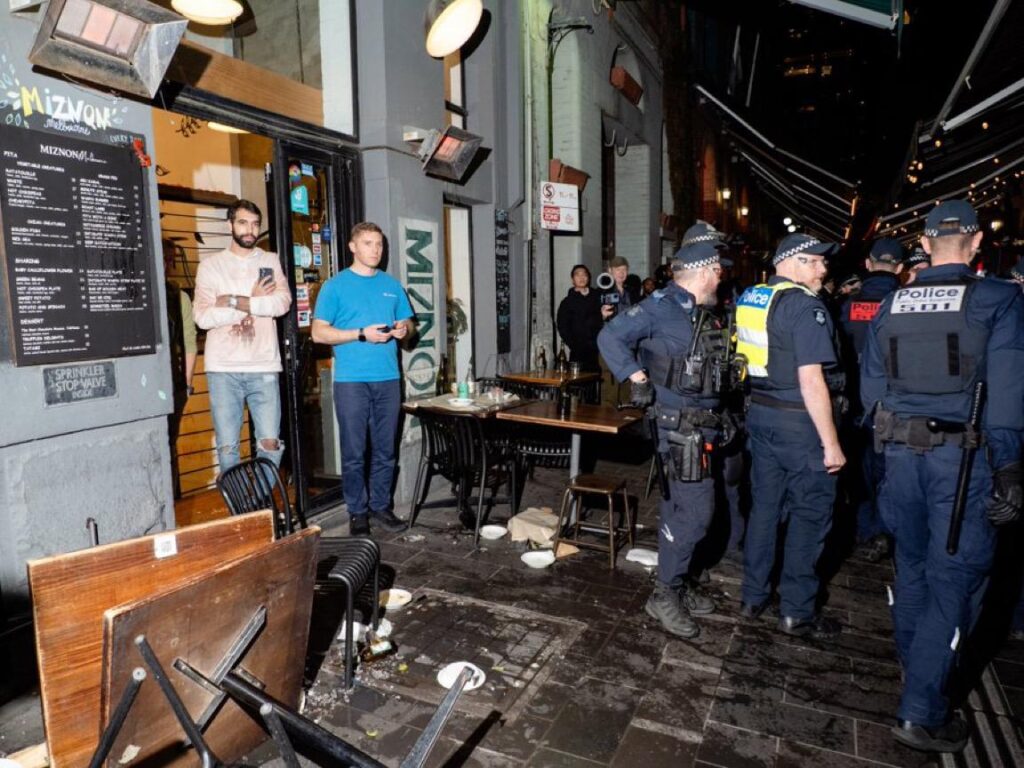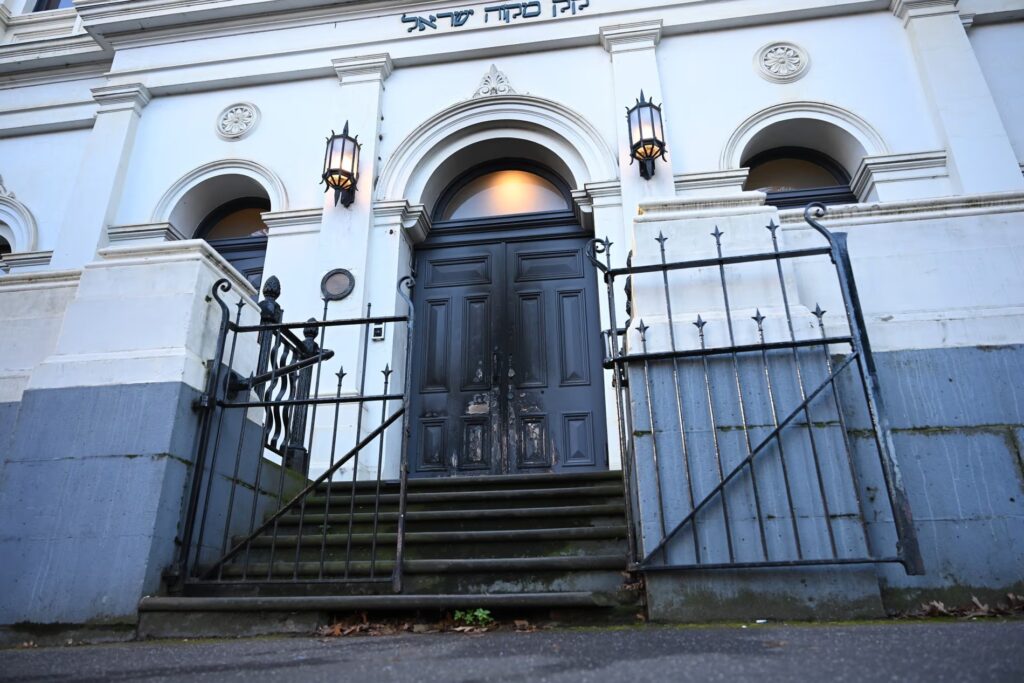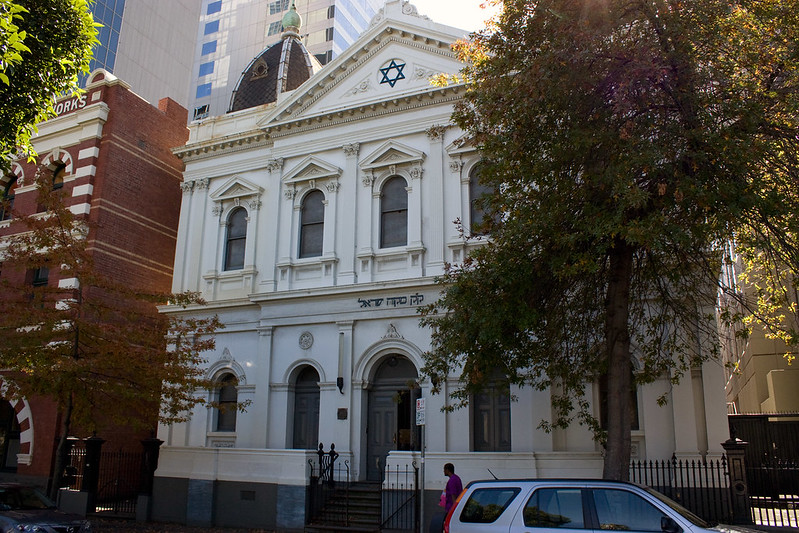UPDATES
The Riyadh Arab League Summit
March 28, 2007 | AIJAC staff
Update from AIJAC
March 28, 2007
Number 03/07 #10
Arab League Summits have in recent years been rather boring affairs, where little of substance is accomplished. However, there is much more interest than usual in the Summit beginning today in Riyadh, both because the Arab world seems unusually united about concern over Iran, and because there has been much discussion of a Saudi intention to re-introduce their peace plan first approved in 2002. The US and Israel are pushing for changes to the proposal in the hope that it could potentially be the basis of Arab-Israeli peace progress, as this Update discusses.
We lead off with a good generalised discussion of the motivation on the Arab side for progress, and what the positive and negative elements of the Saudi proposal are. It comes from Dr. Eran Lerman, a former senior Israeli Army intelligence officer who now works as an analyst for the American Jewish Committee. Lerman notes that prospects for a major breakthrough at the Summit seem thin, but argues that Israel should be receptive to gestures to help build an anti-Iran coalition. For his full discussion, CLICK HERE.
Next up, David Schenker and Simon Henderson of the Washington Institute for Near East Policy examine the background to the Summit in terms of Saudi diplomatic plans and the interests of the various parties participating. While they discuss the Saudi initiative, they also include some detail about how the Summit may affect Syrian and Lebanese affairs. For the complete analysis, CLICK HERE.
Finally, New York Times correspondent Thomas Friedman has a piece urging Saudi King Abdullah to move beyond using the Saudi peace plan (which Friedman helped launch) as a political signal and point-scoring exercise and turn it into a real breakthrough by taking his plan to Israelis directly. He even has an itinerary for Abdullah which he urges him to adopt. To read Friedman’s argument why such a breakthrough step is both necessary and would work to help bring peace, CLICK HERE.
Will the Riyadh summit advance peace?
Eran Lerman
International Herald Tribune, Tuesday, March 27, 2007
JERUSALEM – Arab League members gathering in Riyadh for their summit are acutely aware of the gravity of the hour. The top priority, for Arab leaders as well as the international community, is Iran’s bid for the bomb.
To avert this dire possibility, the region needs a common front, uniting Arab states, the United States and key Western allies. At stake is the survival of these Arab regimes and the existing regional order.
Still, for many – above all, the Saudi hosts – it is important that such a mobilization be given political cover in the form of action, or at least a framework for action, on the Arab-Israeli front. While Arab leaders worry about Iran, their “street” frets about the Palestinian question.
Israel knows this. Hence the recent positive comments by Israeli leaders of engaging with the Arab world on the basis of a 2002 Saudi peace initiative, and the announcement once again from the Israeli Cabinet of its commitment to a two-state solution.
Israelis are also acutely aware that for the Arab “street” and many Arab leaders the issue is not any specific Palestinian grievance. After all, the option of Palestinian statehood and independence has been open for years. It is Israel’s very existence they find unacceptable.
Thus it is particularly important for Israel to be assured that the bid for peace is not the first step toward its demise. If the Saudis and the Arab League could come to the peace table with an open-ended agenda, rather than a “meet our demands first, then we’ll negotiate later” approach, it could at least create an opportunity for further progress.
The Saudi initiative, presented by Crown Prince Abdullah in March 2002, has never really left us. It was included in the Road Map preamble, the document which governed much of what was done in recent years in pursuit of Israeli-Palestinian agreement.
At the time the initiative was issued, the intensity of the conflict ruled out any progress. Just hours after the proposal’s official release, a Hamas suicide bomber blew up a Passover gathering, killing 29 and wounding 150. Israeli military forces soon reentered the West Bank and Gaza.
This time it’s different. The sudden surge in Saudi activism in recent months has two main components. First, the Saudi monarchy is truly frightened by the ascendance of Iran and the prospect of a so-called “Shia crescent” in the region.
Second, Saudi Arabia, riding a huge wave of oil profits and enjoying a unique role as a “swing producer” of oil, has newly revived clout.
On the eve of the Arab summit, it is clearly wise for Israel to sound respectful toward the Saudi role in regional affairs – even more so if Arab states line up behind an anti-Iranian position.
What are the “positive elements” praised by Israeli Prime Minister Ehud Olmert? There is the notion, already cited in the Road Map, that a breakthrough would lead to Israel’s full acceptance by the Arab world. There is also the benefit of tackling the permanent status issues in advance. The Saudi initiative does offer, up front, the one thing Palestinian leader Yasser Arafat went to his grave avoiding – the finality of the conflict.
The negatives are equally clear. Arab demands, always presented as non-negotiable, are for the complete withdrawal by Israel to 1967 borders , including Jerusalem, and the resolution of the so-called Palestinian “right of return.” Any Israeli negotiator is bound to resist the existing language on these issues.
Still, some in Israel believe there is room for flexibility in the Arab position. Others are less sanguine, particularly when keeping in mind the results of previous Arab League summits and the current Hamas-dominated Palestinian leadership.
Certainly the prospects of a breakthrough at this week’s summit are quite dim.
Yet it does serve more than one purpose for Israeli leaders not to be reflexive nay-sayers, but rather to seek a role as sensible participants in the effort to forge a new political reality in the Middle East that counters the growing Iranian threat.
Eran Lerman, a former senior Israeli military intelligence officer, is director of the American Jewish Committee’s office in Jerusalem.
———————————————————————–
The Riyadh Arab Summit: Issues & Expectations
By David Schenker and Simon Henderson
PolicyWatch #1215
Analysis of Near East Policy from the scholars and associates of The Washington Institute
March 27, 2007
On March 28, the Arab League will convene the annual summit of its twenty-two member states in Riyadh, Saudi Arabia. Despite a record of disunity and inconclusiveness, this annual meeting of Arab leaders remains the subject of intense interest in the region. Rising Sunni-Shiite tensions, talk of a peace opening with Israel, and developments in Iraq, the Palestinian Authority (PA), and Lebanon have generated more attention for this year’s summit than usual.
Background
Two Arab summits were convened in 2006. In June, an emergency meeting was held following Hamas’s kidnapping of Israeli soldier Gilad Shalit and the subsequent Israeli incursion into Gaza. The meeting concluded with a unanimous condemnation of Israel’s military action. Some four months prior, Arab leaders gathered in Khartoum for the annual Arab Summit.
Highlights from that meeting’s final communiqué included a pledge to provide $55 million per month in funding for the internationally isolated, Hamas-tainted PA; a condemnation of the Syria Accountability Act (a congressional sanctions measure targeting Syria for undermining stability in Iraq, Lebanon, and the Palestinian territories); and praise for Hizballah as a “resistance” organization, over the objection of pro-Western Lebanese prime minister Fouad Siniora. The communiqué was issued just one month before Hizballah kidnapped two Israeli soldiers and sparked a war. Although the summit took place in the Sudanese capital, the humanitarian crisis in Darfur was just a footnote.
Saudi Diplomacy in High Gear
In the months leading up to this year’s summit, Saudi diplomatic activism has surprised the region, eclipsing, at least temporarily, the traditional Egyptian role in Arab politics. Led by Saudi National Security Council chief and former ambassador to Washington Prince Bandar bin Sultan, the kingdom brokered the Mecca accord between the warring Palestinian Fatah and Hamas factions and worked with Iran to try to mediate a solution to the impasse in Lebanon. Riyadh also condemned Hizballah for its provocation last summer and, more recently, hinted at the possibility of Saudi intervention in support of Iraqi Sunnis should Shiites get the upper hand.
Another aspect of this relatively robust Saudi foreign policy is the Arab Peace Initiative, formerly known as the Saudi Initiative. It is believed that the Saudis will move to “reactivate” this initiative at the Arab Summit, building on last September’s secret but widely reported meeting between Prince Bandar and Israeli prime minister Ehud Olmert. For the Saudis, a deal with Israel would be an insurance policy vis-à-vis a predatory Shiite Iran. For Israel, however, the seemingly innocuous land-for-peace deal is a nonstarter, as it includes provisions for Palestinians’ “right of return” to their homes in Israel. Both Arab League and Saudi officials say that no modifications will be made to the plan.
The Riyadh meeting will be a real test for the new Saudi diplomacy. The challenge will be for the Saudis to turn the Arab Peace Initiative from a position — i.e., Israeli withdrawal to the 1967 lines in exchange for peace and normalization with Arab states — into a proposal that is acceptable to Israel and that could eventually become a framework for negotiations. To this end, it has been reported that if Israel were to agree in principle to King Abdullah’s 2002 peace initiative, Saudi Arabia, Egypt, and Jordan would establish a committee to repackage that plan with softened conditions, presumably regarding right of return. Thus far, however, this potential proposal has been couched in vague terms that do not inspire U.S. or Israeli confidence. Weeks after forging an inter-Palestinian agreement based on compromise, what strategy will King Abdullah pursue to forge consensus among Arab leaders on these controversial issues?
Parochial Interests
It will be difficult to find common ground among the Arab states. According to the pan-Arab daily al-Hayat, the top items under discussion will be “support for the rights of Palestinians, the unity of Lebanon, and peace for Iraq.” Not surprisingly, however, each state comes to the summit with its own separate priorities as well:
Syria. Damascus has two main priorities. First, it would like to use the opportunity to patch up its bilateral relationship with Saudi Arabia, which has deteriorated markedly since the November 2005 assassination of former Lebanese prime minister Rafiq Hariri — a crime for which Syria is largely believed to be responsible. Second, and perhaps more important, Damascus hopes to end its international isolation. As Foreign Minister Walid Muallem told the state news agency after preliminary meetings in Riyadh on March 25, “There is full Arab consensus on the refusal of the American position” regarding sanctions against the Asad regime.
Lebanon: A tale of two governments. Lebanon brings its own special set of issues to the summit. Unable to agree on personnel or positions, as happened last year, two Lebanese delegations will attend this summit: one led by pro-Western Prime Minister Sinioria, the other by Syrian-allied President Emile Lahoud. According to a March 26 al-Hayat report, Lebanon will push for several largely compromise points at the summit, including compensation from Israel for the summer war, a UN role in adjudicating the Shebaa Farms dispute, and assurance of a Palestinian departure from Lebanon and a “right of return to their homes” in Israel. Lebanon will also raise other controversial domestic issues, such as the international tribunal on the Hariri assassination and Lebanese relations with Syria, albeit in a more generic way. In a nod to Hizballah, the Lebanese government is also asking the Arab League to publicly advocate a differentiation between “terrorism and legitimate resistance.”
Palestinians. While Fatah and Hamas have their own separate interests, the Palestinians are entering the summit with a new national unity government and a unified position. The Palestinian agenda is limited and focused on money. The PA seeks Arab support to end the economic blockade on the Hamas-led government, as well as direct budgetary support. Based on statements emanating from Riyadh, it appears that the Arab League may in fact move to end the Palestinians’ isolation. Several Arab states are also likely to renew their pledges to fund the PA, but the actual delivery of these pledges has long been a question mark.
Iraq. The positions advocated by the Iraqi delegation for adoption by the Arab Summit are largely noncontroversial. Among other elements, the platform includes support for the territorial integrity of Iraq and its “Arab and Islamic identity” — a phrase that is both a slight to Kurds and a brushback for Iran — as well as a call for a national reconciliation meeting to be held as soon as possible. Baghdad is also seeking Arab support for the following: a review of the de-Baathification law to “take away the rationale for political revenge”; the abolition of militias; and an equitable distribution of oil wealth in Iraq. The Iraqis may also be looking to their Gulf neighbors to finally fulfill their 2003 debt-relief commitments. But most important, Baghdad will be pressing for an end to external intervention in Iraq.
Conclusion
Given the summit agenda, there is a lot at stake for Washington. The administration is making a push to reenergize the moribund Israeli-Palestinian negotiations and has adopted the Arab Peace Initiative as a platform for diplomacy. Whether the Arab initiative eventually plays this kind of positive role is largely contingent on what happens at the Arab Summit. At the same time, it is all but certain that the summit consensus will be to end the PA’s financial isolation — a step that could undermine continued European Union support for this U.S.-led policy.
And then there is Syria. To date, Saudi Arabia- — one of the leading proponents of Syrian isolation — has rejected Syrian overtures for a rapprochement. There are even rumors that Riyadh and Tehran may be mediating a solution to the Lebanon crisis that leaves Damascus vulnerable to international sanctions. But Washington’s diplomatic engagement with Damascus this month — the first in nearly two years — may be taken as a signal in the region that U.S. policy toward Syria is shifting. Sensing this, Arab states may be more conciliatory toward Damascus at this week’s summit, undermining the already-tenuous international consensus on Syria.
David Schenker is a senior fellow on Arab politics at The Washington Institute. Simon Henderson is the Institute’s Baker fellow and director of the Gulf and Energy Policy Program.
————————————————————————
Abdullah’s Chance
Is Saudi Arabia becoming the new Egypt?
By THOMAS L. FRIEDMAN
New York Times, Published: March 23, 2007
That’s a question you hear more and more these days in Arab circles, as Saudi Arabia’s King Abdullah becomes more diplomatically active and Egypt, the traditional leader of the Arab world, becomes more diplomatically passive.
In recent months, we’ve seen Saudi Arabia publicly blast Hezbollah for launching an unprovoked war on Israel; we’ve seen King Abdullah forge a cease-fire between Hamas and Fatah in Gaza; we’ve seen him try to tame Iran’s president, Mahmoud Ahmadinejad, and there are rumors that a top Saudi official met with Israel’s prime minister, Ehud Olmert. That meeting was apparently in preparation for the Arab summit in Riyadh, March 28-29, which King Abdullah will be hosting to revive his February 2002 peace overture to Israel of full normalization of relations in return for full withdrawal from the occupied territories.
Since Egypt, for now, seems to be adrift, and the Saudis seem to be afloat in oil revenues, it’s not surprising to see Saudi Arabia becoming more assertive. It could have real benefits — given the Saudis’ standing in the Muslim world — provided that the leader of Saudi Arabia is ready to do what the leader of Egypt did when it comes to making peace with Israel.
What the moribund Israeli-Palestinian talks need most today is an emotional breakthrough. Another Arab declaration, just reaffirming the Abdullah initiative, won’t cut it. If King Abdullah wants to lead — and he has the integrity and credibility to do so — he needs to fly from the Riyadh summit to Jerusalem and deliver the offer personally to the Israeli people. That is what Egypt’s Anwar Sadat did when he forged his breakthrough. If King Abdullah did the same, he could end this conflict once and for all.
I would humbly suggest the Saudi king make four stops. His first stop should be to Al Aksa Mosque in East Jerusalem, the third holiest site in Islam. There, he, the custodian of Mecca and Medina, could reaffirm the Muslim claim to Arab East Jerusalem by praying at Al Aksa.
From there, he could travel to Ramallah and address the Palestinian parliament, making clear that the Abdullah initiative aims to give Palestinians the leverage to offer Israel peace with the whole Arab world in return for full withdrawal. And he might add that whatever deal the Palestinians cut with Israel regarding return of refugees or land swaps — so some settlements might stay in the West Bank in return for the Palestinians getting pieces of Israel — the Arab world would support.
From there, King Abdullah could helicopter to Yad Vashem, the memorial to the six million Jews killed in the Holocaust. A visit there would seal the deal with Israelis and affirm that the Muslim world rejects the Holocaust denialism of Iran. Then he could go to the Israeli parliament and formally deliver his peace initiative.
Of course, I have no illusions about this. But is it any more illusory than thinking that the incrementalism of the last seven years is going to get anywhere? Now that’s a fantasy. Yes, Al Qaeda would denounce King Abdullah. What else is new? The Saudi ruling family is going to have to decide: Is it going to spend the rest of its days tiptoeing around Al Qaeda, or is it going to confront it — ideologically — head on? Many more Muslims would applaud the Saudi king for such an overture. And I have no doubt that Israel’s majority, which was ready to evacuate Gaza for nothing, would demand that the Israeli government respond positively to an Abdullah initiative delivered in this way.
This would also be a vehicle to tell Hamas to put up or shut up. It is one thing for Hamas to reject the Oslo peace accords. But how could it reject a peace overture to Israel presented by Saudi Arabia?
King Abdullah first unveiled his peace proposal in an interview he and I did in his home in Riyadh in 2002. As we sat by his desk, he told me he was motivated to propose full peace for full withdrawal to the Israelis because “I wanted to find a way to make clear to the Israeli people that the Arabs don’t reject or despise them. But the Arab people do reject what their leadership is now doing to the Palestinians, which is inhumane and oppressive. And I thought of this as a possible signal to the Israeli people.”
Well, it is time to go beyond signals. If the Saudi king just wants to score some points, he will hold the Arab summit, re-issue the peace plan and go home. If he wants to make history and make peace, he will hold the Arab summit, re-issue the peace plan and deliver it in person.
Tags: Iraq





